#olivier pichat
Explore tagged Tumblr posts
Text

Painting of general-in-chief Thomas-Alexandre Dumas Davy de la Pailleterie (1762-1806). By Olivier Pichat.
Alexandre was a French general known as "The Black Devil". He was the father of Alexandre Dumas - who was inspired by the character of the Count of Monte Cristo - and grandfather of Alexandre Dumas (son).
#olivier pichat#royaume de france#french revolution#dumas#alexandre dumas#french aristocracy#black lives matter#Thomas Alexandre Dumas Davy de la Pailleterie#Général Alexandre Dumas#Musée Alexandre Dumas#French Revolutionary Wars#equestrian portrait#Révolution française#Famille Davy de La Pailleterie#noblesse française#french empire#Empire Français#premier empire
16 notes
·
View notes
Text

#Olivier Pichat - Revolutionary French General Thomas-Alexandre Dumas#father of author Alexandre Dumas (1883)
4 notes
·
View notes
Photo



#VoicesfromtheStacks Alexandre Dumas, the Count of Monte Cristo
with an introduction by André Maurois & illustrations by Lynd Ward.
Our focus for today is a famous French author, Alexandre Dumas. If we are to talk about his famous work The Count of Monte Cristo, we would be greatly remiss to not talk about the works larger then life inspiration--Dumas’s own father.
General Thomas-Alexandre Dumas Davy de la Pailleterie was born into slavery in Saint-Domingue, the son of the Marquis Alexandre Antoine Davy de la Pailleterie, a white French nobleman and Marie-Cessette Dumas, an enslaved woman of African descent. He escaped slavery when his father took him to France in 1776, as slavery had been illegal there since 1315. He entered the French army, and became a general under Napoleon Bonaparte, becoming one of the highest-ranking men of African descent ever to lead a European army. After a notable career in Egypt and Italy he was taken prisoner in Naples, where he was forced to land after a storm. Freed after two years with ruined health, he returned to France with his wife, but he or his wife were never granted the pension normally granted to those of his rank. This is believed to have been caused by his personal rivalry with a likely jealous Napoleon. In at least one instance in Egypt, locals seeing the muscular, over 6 ft Dumas leading a charge believed him to be in command instead of the less imposing Napoleon. This lack of pension lead to his son and wife to live in poverty after his death.
However, his son Alexandre Dumas became one of the most widely read French authors today. Known for his swashbuckling adventures, such as The Three Musketeers, The Man in the Iron Mask, and The Count of Monte Cristo, Dumas also wrote fantasy, such as The Wolf Leader, which is considered one of the earliest werewolf-themed books. His works have been adapted into nearly 200 films.
Image of photo of Alexander Dumas in 1865- Getty Images Painting of General Thomas-Alexandre Dumas by Olivier Pichat courtesy of WikiMedia Commons.

(Yes, this is the Three Musketeers, not the Count of Monte Cristo, but how can you talk about Dumas without them?)
--Diane R.
#voicesfromthestacks#uiowaspecialcollections#alexandre dumas#the count of monte cristo#general thomas-alexandre dumas#all for one and one for all
166 notes
·
View notes
Photo
May I also suggest another person to consider: Thomas-Alexandre Dumas. Born in 1762, he had a very successful military career from 1786-1801. He started in an enlisted position (because of his color) but quickly rose through the ranks: a Lieutenant Colonel of a freedman’s legion, a Brigadier General, a General, rising all the way to a Commander-in-Chief of France’s army.

(Painting by Olivier Pichat)
https://en.m.wikipedia.org/wiki/Thomas-Alexandre_Dumas
Today he is more commonly known as the father of Alexandre Dumas, the much celebrated writer of classics stores: Three Musketeers & Count of Monte Cristo.
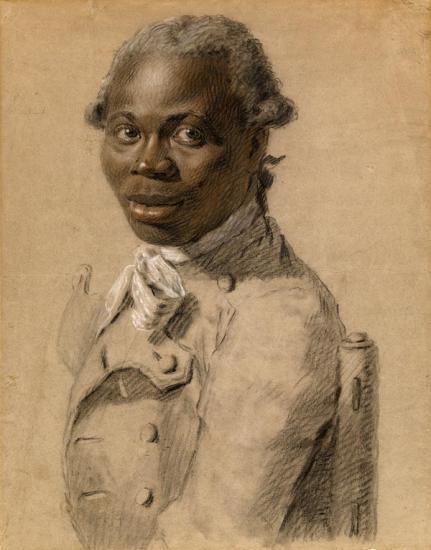
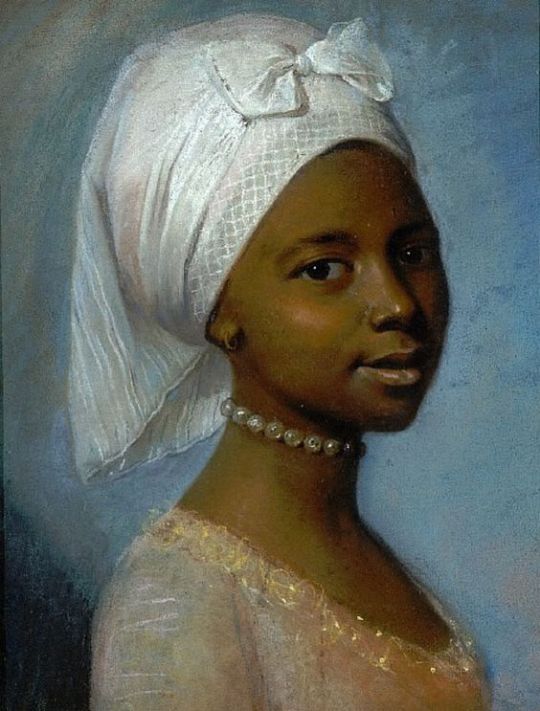

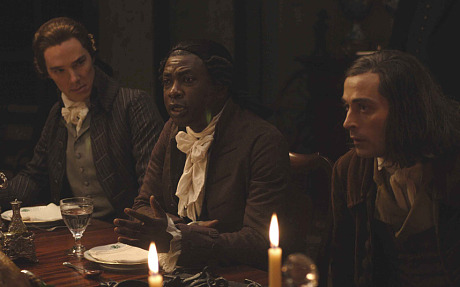
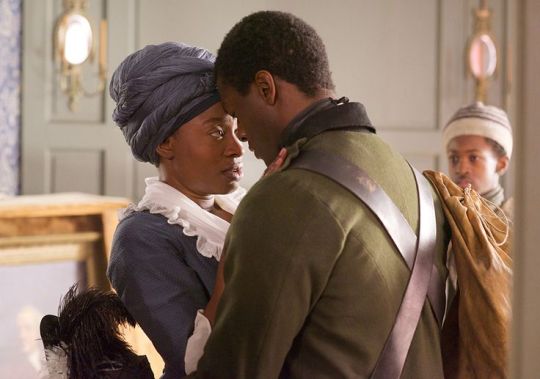




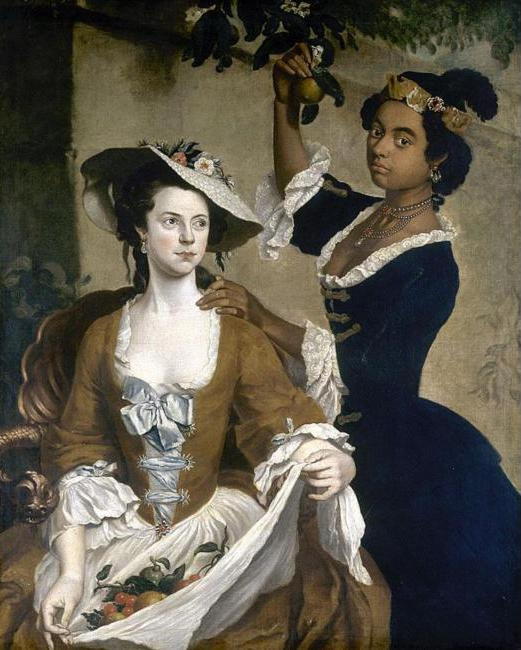
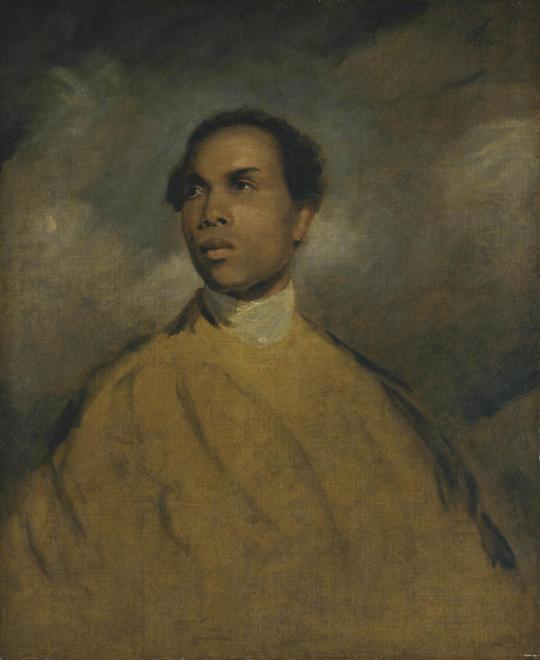
Black 18th Century
“I am America. I am the part you won’t recognize. But get used to me. Black, confident, cocky; my name, not yours; my religion, not yours; my goals, my own; get used to me.” Muhammad Ali.
I’ve been thinking about this since the death of Muhammad Ali, about the importance of black people in society through history and that even nowadays is hardly represented. And in the 18th century, even less represented.
So, let me tell you that finding this images was not easy at all. First of all, since my inspiration was Ali’s black pride, I didn’t want portraits showing black men, women or children in slavery or service position. I wanted beautiful, proud and powerful portraits. And I found them :)
Of course I also wanted some strong characters from tv and film and, you know what? IT WAS FUCKING HARD. Not because there are not many black strong characters in 18th century dramas (even though there actually are not many), BUT because there are not many images of them in the internet. Which, let me tell you Internet, THAT SUCKS.
For example, try googling “Abigail Jordan Turn”. Google it, I’ll wait here (or click the link). There are just a few images of any of both actors (Idara Victor and Aldis Hodge) and of those there are even less with just the two of them or any of them alone. There’s usually also a white character in that photo.
Of course Gugu Mbatha-Raw’s photos were easier to find, since she’s the main actress of “Belle”, it would have been ridiculous to not find photos of her. On the other hand, have you seen Amazing Grace? Do you remember the ONLY black character of this movie? Well, apparently there are only A FEW of different photos of Youssou N'Dour as Olaudah Equiano on a fast Google search.
Finally let me tell you I saw a Mexican/Spanish film this weekend called El Baile de San Juan (I’ll make a full post about that) about a pair of lovers in the last decade of the 18th century in the New Spain. There are two black characters, and one of them is this woman called María Fé (portrayed by Sylvie Henry) who is basically the link between all stories and characters, so she’s there the WHOLE movie, the story flows because of her. She’s got a son (Jacinto, portrayed by the beautiful Yotuel Romero) which is a small character. Her costume is very likely one of the most historically accurate from the movie and it’s gorgeous (from the earrings she wears, to her hair, her chintz print petticoat… everything). But you know something? The photo I posted here is the only decent one on the internet of her, no promo shots, no stills, no nothing. As if the only characters in the movie are the two (boring) main characters and the European ones.
And this is only a little example of the lack of representation nowadays of black people. But, let me let you go with this thought: this post is about black people and it was hard, if I would have looked for mestizo and mixed raze representation in the 18th century (and nowadays) I would have to stick to casta painting and a few American portraits just to get that in the media, we Latin people (and all people of colour) are pretty invisible.
But let’s better take a look at the photos from top and you all should reblog and add images of 18th century black people <3
“Portrait of a Young Woman”, 1790s, Jean-Étienne Liotard.
“Portrait of a Man”, ca. 1802, Joseph Ducreux
“Portrait of Dido Elizabeth Belle Lindsay and her cousin Lady Elizabeth Murray”, ca. 1778, Johann Zoffany
Youssou N'Dour as Olaudah Equiano in “Amazing Grace”, dir. Michael Apted, costume design by Jenny Beavan.
Idara Victor as Abigail and Aldis Hodge as Jordan in “Turn”, costume design by Donna Zakowska.
“De Negro y India; China cambuja”, 1763, Miguel Cabrera
“Portrait of a Young Black Italian Man”, 1760s, Alessandro Longhi
Sylvie Henry as María Fé and Yotuel Romero as Jacinto in “El Baile de San Juan”, dir. Francisco Athié, Costume Design by Leticia Palacios, 2010.
Gugu Mbatha-Raw as Dido Elizabeth Belle in “Belle”, dir. Amma Asante, costume design by Anushia Nieradzik, 2013.
“Portrait of Two Society Women", 1740s, Stephen Slaughter
“A Young Black (thought to be Francis Barber)”, undated, Sir Joshua Reynolds
4K notes
·
View notes
Photo

Général Alexandre Dumas, 1883, by Olivier Pichat (1825-1912)
#Général Alexandre Dumas#1800's#1880's#19th century#Olivier Pichat#art#art history#art history blog#painting#french art#france#french
321 notes
·
View notes
Photo

Olivier Pichat (1825-1912) - Thomas Alexandre Dumas
#Olivier pichat#thomas alexandre dumas#french revolution#french general#french history#made in france
34 notes
·
View notes
Photo

General Alexandre Dumas, Olivier Pichat
2 notes
·
View notes